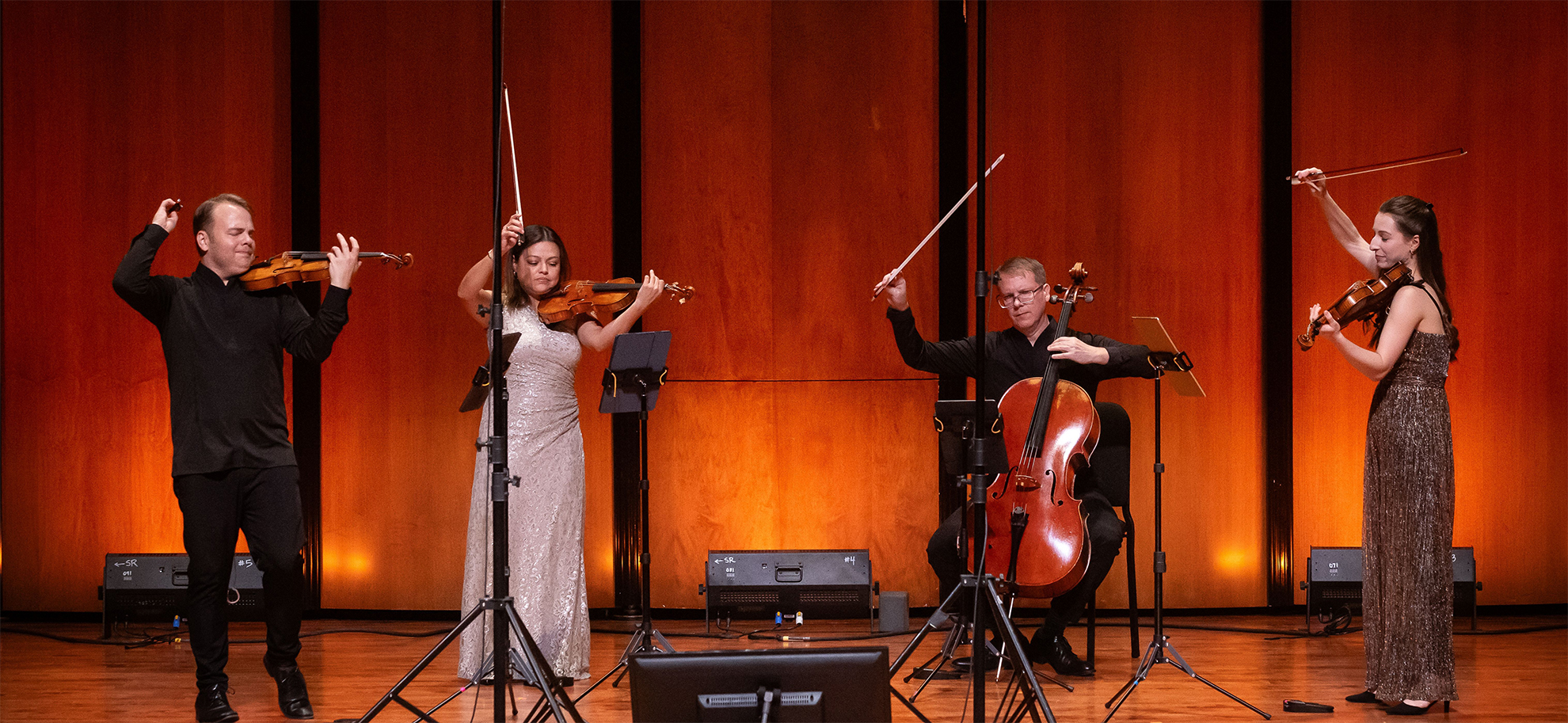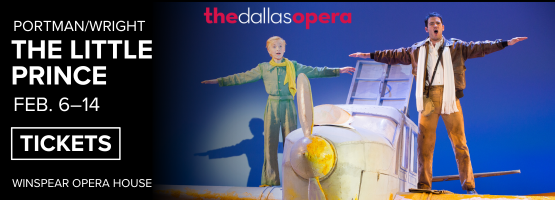Everybody appreciates a little recognition from their peers, right? It came to the Apollo Chamber Players from Chamber Music America, which promotes their field nationwide.
“Congratulations on being selected to receive the Ensemble/Ensemble Project of the Year Award,” said the letter announcing the choice. The award, it continued, celebrates “exceptional artistry, musicality, and groundbreaking impact on the chamber music landscape. The Apollo Chamber Players is being recognized particularly for having curated its innovative concert series titled ‘Silenced Voices’ focused on censorship and democracy.”
The award honored Apollo’s 2023-24 season, which featured commissioned works that looked at such subjects as banned books and hushed-up pieces of history. The concerts also saluted the likes of Aaron Copland, the quintessentially American composer once summoned to defend his personal views before the House Un-American Activities Committee. In Apollo’s coming season, looking toward the country’s 250th birthday next summer, the group will continue to explore the issues driving American society—and the freedoms that have long helped the nation flourish.
Apollo’s mission is “to create cultural harmony through musical exploration,” says Matthew Detrick, violinist and artistic director. He thinks the kudos from Chamber Music America signal that the ensemble is on the right track.
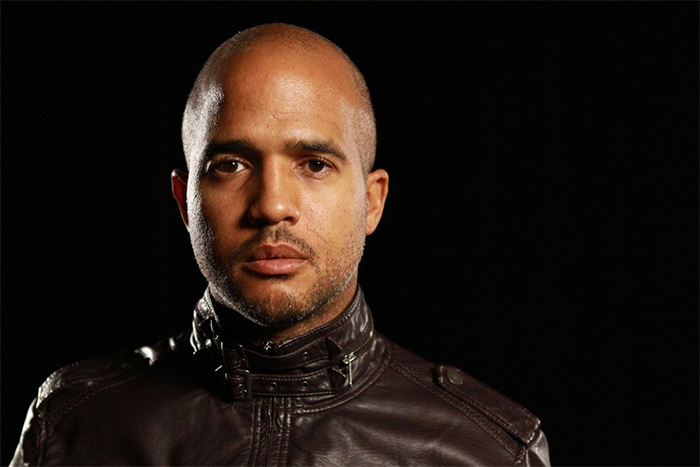
1 ⁄5
Composer Danile Bernard Roumain. Photo courtesy of the artist.
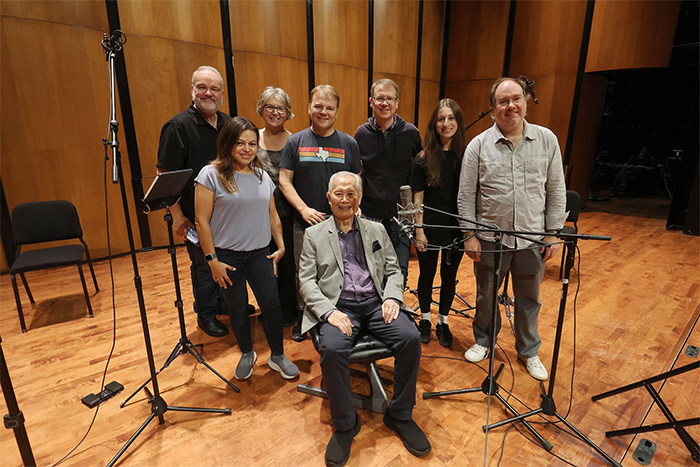
2 ⁄5
Apollo Chamber Players recording session with George Takei. Photo by Pin Lim.
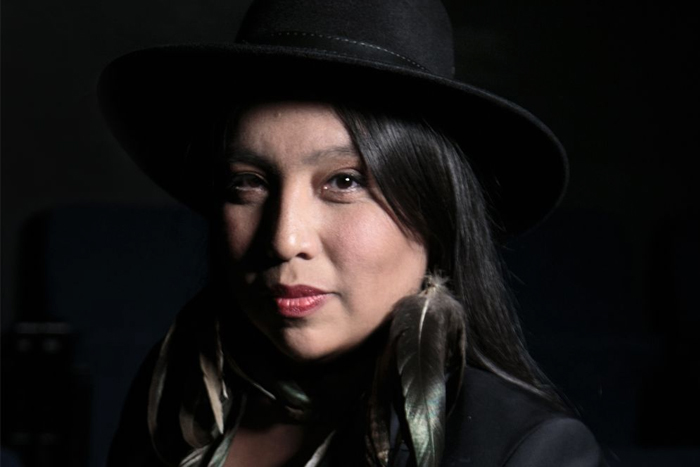
3 ⁄5
Amelia Rico, Photo courtesy of the artist.

4 ⁄5
Houston Poet Laureate Aris Kian Brown. Photo courtesy of the artist.
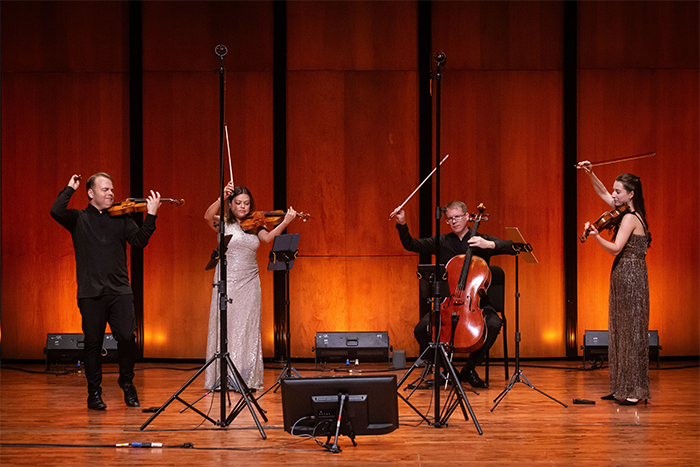
5 ⁄5
Apollo Chamber Players; Photo by Lynn Lane.
“It was very gratifying to have that recognition from the premier chamber music organization of the nation,” Detrick says. He adds that “nobody else in the country has been doing this programming around censorship” and other hot-button issues.
The award was presented during Chamber Music America’s first annual conference outside New York City–held right here in Houston last February. Apollo relished “being able to celebrate our very community-centric work with people from all over the nation,” Detrick says. Given that many of the new works pulled in Houston composers, poets and other artists as collaborators, “I think it was really great to shine the light on the arts and culture scene here in Houston, Texas. … .We have something special going on here.”
Houston artists will share Apollo’s spotlight again in the season’s opening concert, which will focus on the Declaration of Independence and its key tenets (Oct. 4). New works will come from three Houston composers: Jalen Baker, a jazz composer and vibraphone player; Emma Wine, who last season wrote a commissioned work for Ars Lyrica; and Jaylin Vinson, who recently completed a composition degree from Rice University’s Shepherd School of Music. Apollo also is enlisting Houston’s last six poet laureates, from Robin Davidson of a decade ago to today’s Reyes Ramirez, plus former Texas poet laureate Lupe Méndez. Deborah D.E.E.P Mouton, Davidson’s successor as poet laureate and a widely known spoken-word performer, is curating alongside Detrick.
Mouton and Vinson, who collaborated on a one-act opera that premiered last winter at the Kennedy Center for the Performing Arts in Washington, will explore the Declaration’s avowal that “all men are created equal” and that Americans’ “unalienable rights” include “life, liberty and the pursuit of happiness.” Mouton’s poem “Self-Evident” will reflect on how the past 250 years have unfolded, and Baker’s Hold These Truths… will magnify her words through tone-painting.
All that plus still more poetry and music—including reprises of past Apollo commissions—will weave together into “a long-form program” lasting an hour, Detrick says. “It’s connected, but there are different segments.”
Apollo’s second program will “explore how the United States and our democratic ideals have enlightened other countries in their hopeful march toward democracy,” Detrick says. A new work by Estonian-American Lembit Beecher will evoke the Baltic Singing Revolution of the late 1980s—when citizens of Estonia, Latvia and Lithuania raised their voices in patriotic songs to push back against Soviet domination. Their power helped turn the tide.
Beecher, trained in part at Rice’s Shepherd School, “has been on our mind for a commission for many years, particularly because he is inspired by Estonian and Baltic folk music,” Detrick says. “And I think this is a great time to talk about the Singing Revolution. … When I had my first conversation with him, I said, ‘Could we figure out something around this theme?’ And he mentioned that, when he was a child, his grandmother played tapes of the Singing Revolution.” So Beecher’s new work will weave together world events and “some of his personal story, as well.”
The program also will pay tribute to a long-neglected detail of U.S. history: Benjamin Franklin and other members of the Constitutional Convention drew on a longstanding peace treaty among six Native American nations in drafting the Constitution. In 1987, a U.S. Senate resolution paid tribute to the Iroquois Confederacy, as the treaty was then called, saying “the confederation of the original Thirteen Colonies into one republic was explicitly modeled upon the Iroquois Confederacy as were many of the democratic principles which were incorporated into the Constitution itself.”
The next program (Feb. 7) will center on a new work celebrating the work of 19th-century Black visionaries Frederick Douglass and Booker T. Washington. Violinist-composer Daniel Bernard Roumain, whose string quartet evoking Rosa Parks featured in one of Apollo’s concerts last season, will remember the two in a new work for string quartet, vocal quartet and narrator. Kenneth Morris Jr., a descendant of both Douglass and Washington, will be the speaker, with the text based on a meditation of his own titled “The River Between Us.” It draws a parallel between the Ohio and Detroit Rivers, which enslaved people crossed via the Underground Railroad to seek freedom, and today’s Rio Grande.
“The rivers change. The faces change. But the longing, the courage—that remains,” Morris writes. “Our ancestors…risked everything for the dignity of tomorrow. And when we see others reaching for the same, we are called to remember. Called not only to reflect, but to respond.”
Apollo will turn to the United States’ long history of scientific discovery with the season finale (May 23). “Scientific innovation has been nurtured because of our freedoms, our democratic ideals, and the rule of law in particular,” Detrick says. Houston composers Mark Buller and John Cornelius, both of whom have filled past Apollo commissions, will collaborate on a work celebrating NASA’s Apollo Project—as represented by the potential tragedy of Apollo 13 and its inflight breakdown.
As Detrick and the composers discussed their options, Detrick recalls, they asked themselves “what can we do that’s different, and what story can we tell that has not yet been told?” Rather than revel in the astronauts’ bravery, the new work will highlight the lifesaving ingenuity back home at Houston’s Johnson Space Center, as embodied by a Cuban-American engineer named Miguel Hernandez.
Born in Havana in 1941, Hernandez fled Castro’s regime and settled in the United States, where he earned an engineering degree and joined NASA. The young immigrant helped train Neal Armstrong and other astronauts, and he was on duty in Mission Control when the Apollo 13 crew sent the famous—but often misquoted—news flash, “Houston, we’ve had a problem.” Highlighting him not only gives a fresh window into the Apollo 13 saga, Detrick notes, but will give the work a “Houston-centric” tinge.
Apollo’s annual Czech Heritage Month Concert (Oct. 29) will bring a foray into standard chamber-music repertoire, through works including Antonín Dvořák’s “American” Quartet. This year’s Holiday Voyage (Dec. 13) will again offer a pluralistic view of the season and its music. And all along, the group will promote its recently released CD: Ban, which includes seven of Apollo’s recent commissions.
The disc opens with Marty Regan’s The Book of Names, built around narration by actor George Takei. It includes Takei’s recollections of his Japanese-American family’s internment during World War II.
“George talks about how…the soldiers with bayonets came to his house,” Detrick says. “He saw them from the front window, and they came in and said, ‘You get five minutes to collect your belongings and come with us.’ I think it’s, unfortunately, very timely and relevant, and I think we need to continue to tell that story.”
—STEVEN BROWN

